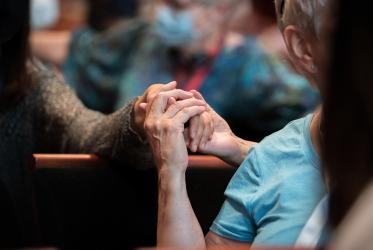Displaying 1 - 20 of 44
17 April 2024
WCC, WHO commemorate 50 years of collaboration
04 April 2024
WCC webinar explores decolonizing beauty
11 December 2023
Pandemic and pedagogy: what are the valuable lessons?
21 December 2022
Unity is key when health crisis poses new challenges in Asia
28 February 2022













